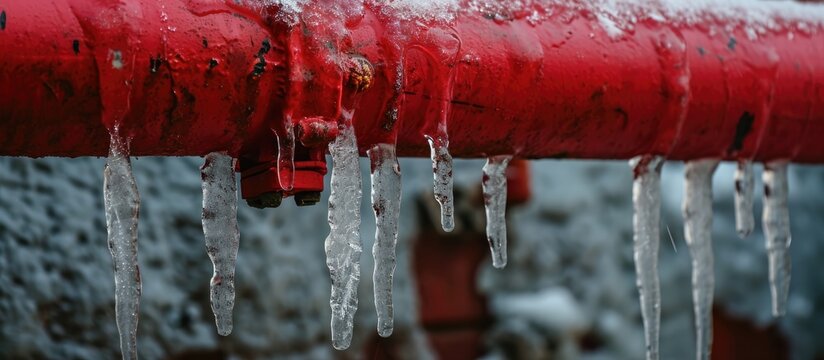Presented here in the next paragraphs you can get some dependable guidance concerning How to Prevent Your Pipes From Freezing.

Cold weather can ruin your plumbing, specifically by freezing pipelines. Here's just how to stop it from occurring and what to do if it does.
Intro
As temperatures drop, the threat of frozen pipelines rises, potentially causing expensive repair services and water damage. Understanding just how to avoid icy pipelines is vital for home owners in chilly environments.
Avoidance Tips
Shielding at risk pipelines
Cover pipelines in insulation sleeves or make use of warm tape to secure them from freezing temperature levels. Focus on pipes in unheated or exterior locations of the home.
Home heating methods
Keep indoor rooms appropriately warmed, particularly areas with pipes. Open closet doors to enable warm air to circulate around pipelines under sinks.
How to recognize frozen pipelines
Search for lowered water circulation from taps, unusual smells or sounds from pipes, and visible frost on exposed pipes.
Long-Term Solutions
Structural changes
Think about rerouting pipelines away from exterior wall surfaces or unheated locations. Include extra insulation to attic rooms, cellars, and crawl spaces.
Upgrading insulation
Invest in high-grade insulation for pipes, attic rooms, and wall surfaces. Appropriate insulation helps preserve constant temperatures and minimizes the risk of frozen pipes.
Safeguarding Outside Pipes
Garden tubes and outdoor faucets
Disconnect and drain pipes garden hose pipes before winter season. Install frost-proof spigots or cover outdoor taps with protected caps.
Understanding Icy Pipelines
What triggers pipes to ice up?
Pipes ice up when subjected to temperatures listed below 32 ° F (0 ° C) for extended durations. As water inside the pipes ices up, it expands, taxing the pipeline walls and possibly creating them to burst.
Dangers and problems
Frozen pipes can bring about water disruptions, home damage, and pricey repairs. Ruptured pipes can flooding homes and cause considerable structural damages.
Indications of Frozen Pipes
Recognizing frozen pipes early can stop them from breaking.
What to Do If Your Pipes Freeze
Immediate activities to take
If you believe icy pipelines, keep faucets open to ease pressure as the ice thaws. Make use of a hairdryer or towels soaked in hot water to thaw pipelines slowly.
Conclusion
Protecting against icy pipes calls for positive steps and fast feedbacks. By understanding the reasons, signs, and preventive measures, property owners can safeguard their plumbing during cold weather.
Helpful Tips to Prevent Frozen Pipes this Winter
UNDERSTANDING THE BASICS: WHY PIPES FREEZE AND WHY IT’S A PROBLEM
Water freezing inside pipes is common during the winter months, but understanding why pipes freeze, and the potential problems it can cause is crucial in preventing such incidents. This section will delve into the basics of why pipes freeze and the associated problems that may arise.
THE SCIENCE BEHIND FROZEN PIPES
When water reaches freezing temperatures, it undergoes a physical transformation and solidifies into ice. This expansion of water as it freezes is the primary reason pipes can burst. As the water inside the pipe freezes, it expands, creating immense pressure on the walls. If the pressure becomes too great, the pipe can crack or rupture, leading to leaks and water damage.
FACTORS THAT CONTRIBUTE TO PIPE FREEZING
- Low Temperatures: Extremely cold weather, especially below freezing, increases the risk of pipes freezing.
- Uninsulated or Poorly Insulated Pipes: Pipes located in unheated areas, such as basements, crawl spaces, or attics, are more prone to freezing. Insufficient insulation or lack of insulation altogether exacerbates the problem.
- Exterior Wall Exposure: Pipes running along exterior walls are susceptible to freezing as they encounter colder temperatures outside.
- Lack of Heating or Temperature Regulation: Inadequate heating or inconsistent temperature control in your home can contribute to frozen pipes.
PROBLEMS CAUSED BY FROZEN PIPES
WHY CERTAIN PIPES ARE MORE PRONE TO FREEZING
- Pipe Bursting: As mentioned earlier, the expansion of water as it freezes can cause pipes to burst, resulting in significant water damage.
- Water Damage: When pipes burst, it can lead to flooding and water damage to your property, including walls, ceilings, flooring, and personal belongings.
- Structural Damage: Prolonged exposure to water from burst pipes can compromise the structural integrity of your home, leading to costly repairs.
- Mold and Mildew Growth: Excess moisture from water damage can create a favorable environment for mold and mildew growth, posing health risks to occupants.
- Disrupted Water Supply: Frozen pipes can also result in a complete or partial loss of water supply until the issue is resolved.
https://busybusy.com/blog/helpful-tips-to-prevent-frozen-pipes-this-winter/
- Location: Pipes located in unheated or poorly insulated areas, such as basements, crawl spaces, attics, or exterior walls, are at higher risk of freezing.
- Exterior Pipes: Outdoor pipes, such as those used for irrigation or exposed plumbing, are particularly vulnerable to freezing as they are directly exposed to the elements.
- Supply Lines: Pipes that carry water from the main water supply into your home, including the main water line, are critical to protect as freezing in these lines can affect your entire plumbing system.
- Underground Pipes: Pipes buried underground, such as those connected to sprinkler systems or outdoor faucets, can be susceptible to freezing if not properly insulated.

As a keen person who reads on How To Avoid Freezing Pipes, I figured sharing that information was a smart idea. Enjoyed reading our piece? Please share it. Help other people discover it. Thanks for being here. Kindly check our website back soon.
Browse Website
Comments on “Avoiding Frozen Plumbing in Cold Weather: Expert Tips”